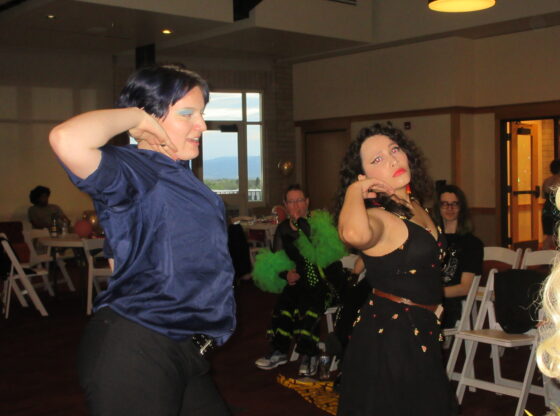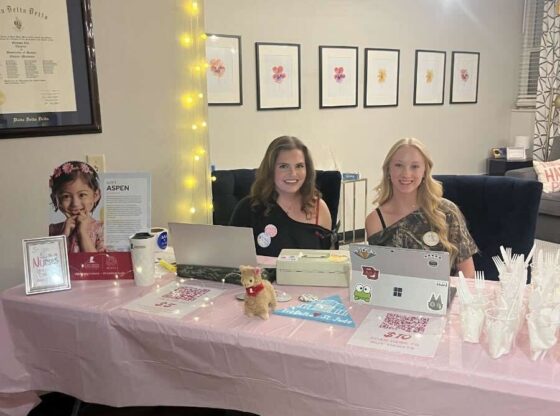College student burnout increased significantly from 40% to 71% from August 2020 to April 2021. Students reported increases in burnout, depression, anxiety and the use of ‘unhealthy coping mechanisms.’ For students who may be struggling, there are resources both on and off campus to help students balance their mental health and responsibilities.
Sarah John is a freelance writer based in New York City. Her work has been featured in NBC Think, Apartment Therapy and Rewire. John earned a full-tuition scholarship to New York University (NYU), where she credits the student paper as a launching pad for her writing career. In addition to diversity and inclusion, John’s work focuses on improving and discussing mental health and wellness, specifically from her own experience with anxiety and ADHD. John sat down with The Clarion to share how writing has helped her navigate her own journey with neurodiversity, self-care, and wellness as a first-generation college student.
Loor: Tell me about your journey into freelance writing from the student paper to pitching to publications.
John: My first time stepping outside the student newspaper was after seeing an acquaintance cover this band that I enjoyed. I felt like I was ready to write professionally and get compensated for my work. I thought why not try freelance writing? I used clips from my work at the student paper. There is a lot of rejection involved in freelance writing, in any competitive industry. A publication may not have the budget that quarter to hire you or your pitch is great, but not a great fit for that publication. You spend a lot of time dealing with rejection and building your confidence as a writer.
Loor: In one of your pieces for the NYU student paper, you wrote about having undiagnosed ADHD and adjustment disorder anxiety, which you didn’t discover until you were 19-years-old. Could you tell me more about your journey in discovering that diagnosis and writing that piece?
John: I have ADHD and adjustment disorder anxiety. I developed this very distinct relationship to asking for help, kind of fear around it, shame around it and there were a lot of times where I was struggling with something and wasn’t getting the support I needed and that stays with you in a certain way. This is very common, like when kids go through a trauma, oftentimes they internalize that as something’s wrong with me, I did something wrong. It’s hard to feel like you deserve help. There’s so much stigma around admitting you need help. It makes you feel incompetent and small and weak. When I was diagnosed, I was terrified.
I wrote that piece to take back control over my narrative. I don’t believe in letting things define you. I think things can be a very important part of you, but it’s all about how you respond. My first thought was if this is going to be the story of my life and it’s going to involve ADHD and anxiety, then that story is going to end on my terms. I wasn’t going to let society or stigma or shame dictate how I responded or how I felt about myself. People told me that this piece made them get diagnosed. The outpouring and the flood of love and support was incredible.
Loor: I don’t know if this is a shared experience, but in my experience, coming to this country as an immigrant and being the child of an immigrant, I feel there’s a lot of expectations to uphold, especially when your parents have sacrificed so much. You talked about having to kind of raise yourself at times because your parents were working, trying to provide the basics. I’m curious to know if that impacted your difficulty seeking help. This can be especially difficult for immigrants, women and minorities who already face more obstacles.
John: Yes. I was always taught that hard work is a sign of respect for the people around you; to not be a burden. I had a bad relationship with [self-care] because it’s always been marketed to me very much from an individualistic way. For immigrant children, culture is community-centered. I thought of hard work as a way of contributing to my community and it took a long time for me to think about it differently.
Taking care of yourself does not have to come at the cost of others anymore or as some sort of reluctance to work hard. Taking better care of yourself means that you are contributing better quality work, better quality care towards others. You have higher-quality ideas to give. You don’t have to give up everything about yourself in order to prove you’re worth something. That idea I think, whether or not we want to admit it, is central to so much of the immigrant work ethic of having to prove we’re worth our place here.
It’s important to me now to act from a place of security and not fear or desperation or anxiety to prove something. I really want to create the things in my life from a space of creativity and imagination and hopefulness and I think that takes a sort of bravery. I like to think of it as a brave choice to take care of myself these days.
Scott van Loo, the Director of DU’s Learning Effectiveness Program (LEP), cites that approximately 1 in 5 undergraduate DU students (22%) are registered with a disability (as of Spring 2021). The LEP is a fee-based program that serves DU students with documented disabilities, who are neurodiverse and/or have a history of learning differences.
One Broomfield based company, Untapped Learning, offers executive function coaching through mentorship sessions both remotely and in person. Founded as an education startup, Untapped works with students to develop organization, time management, planning and self-advocacy skills. If you are a student needing help when the Health & Counseling Center is closed, you can call the main line at 303-871-2205 and press ‘8’ for after-hours crisis counseling services.











